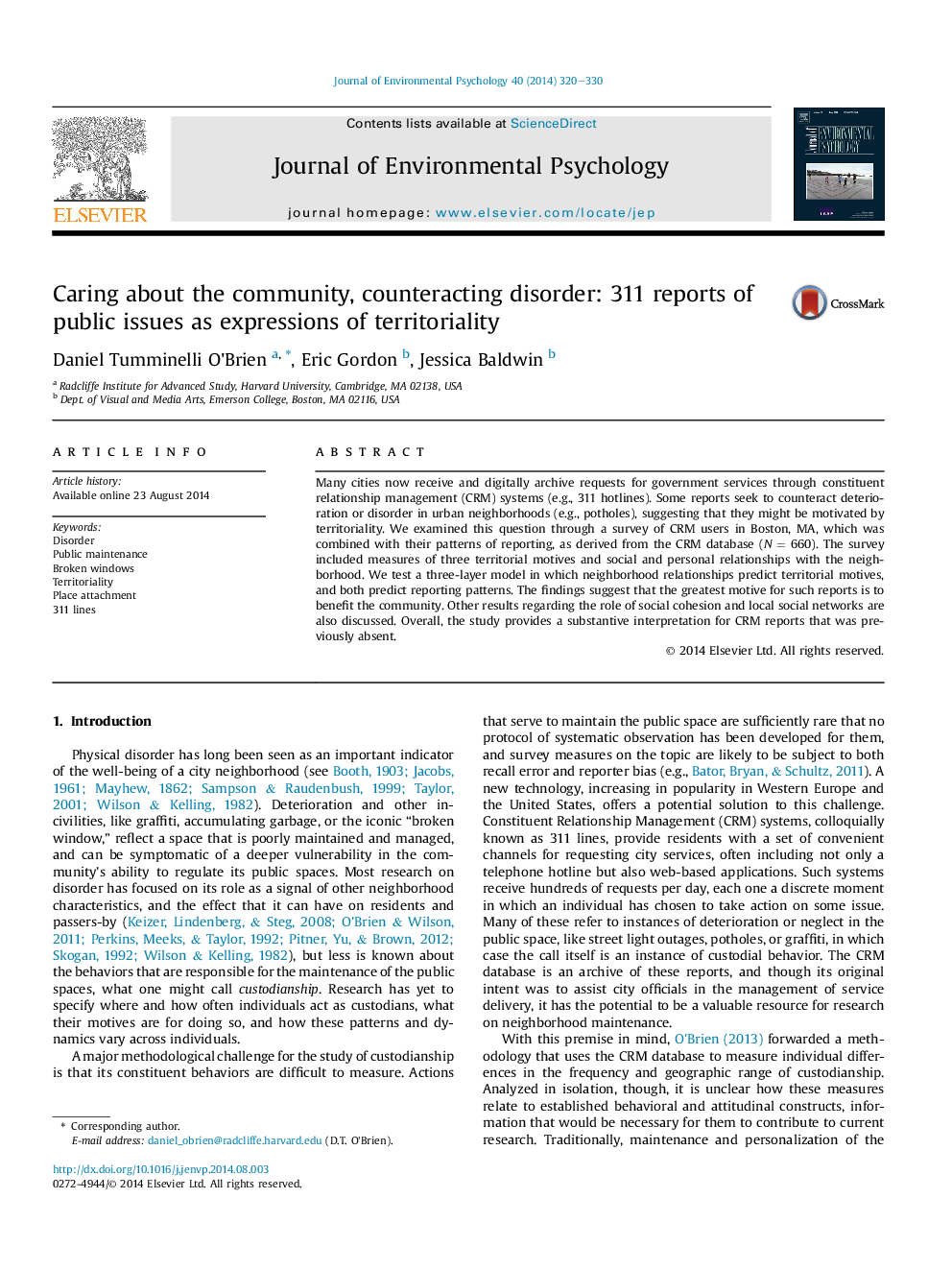| Article ID | Journal | Published Year | Pages | File Type |
|---|---|---|---|---|
| 7246136 | Journal of Environmental Psychology | 2014 | 11 Pages |
Abstract
Many cities now receive and digitally archive requests for government services through constituent relationship management (CRM) systems (e.g., 311 hotlines). Some reports seek to counteract deterioration or disorder in urban neighborhoods (e.g., potholes), suggesting that they might be motivated by territoriality. We examined this question through a survey of CRM users in Boston, MA, which was combined with their patterns of reporting, as derived from the CRM database (NÂ =Â 660). The survey included measures of three territorial motives and social and personal relationships with the neighborhood. We test a three-layer model in which neighborhood relationships predict territorial motives, and both predict reporting patterns. The findings suggest that the greatest motive for such reports is to benefit the community. Other results regarding the role of social cohesion and local social networks are also discussed. Overall, the study provides a substantive interpretation for CRM reports that was previously absent.
Related Topics
Social Sciences and Humanities
Psychology
Applied Psychology
Authors
Daniel Tumminelli O'Brien, Eric Gordon, Jessica Baldwin,
